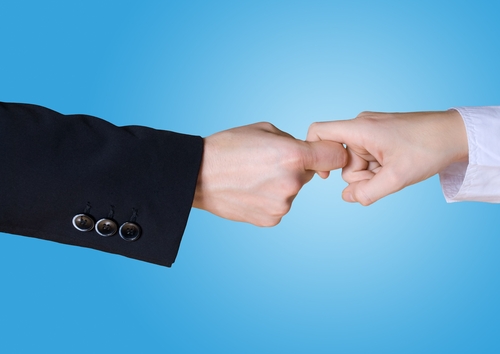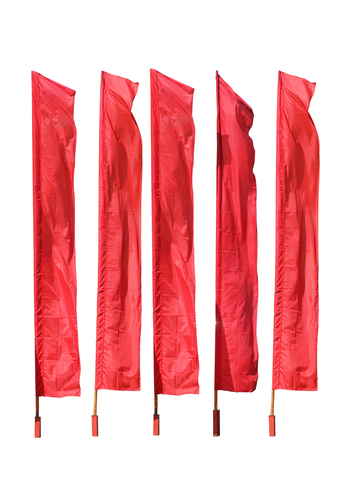
 It seems like it’s becoming more and more important to have a good handshake, in and out of the office. Fathers and high school teachers everywhere would have you believe that the handshake is a fantastic gateway into figuring out whether or not somebody is dependable, respectful, or just plain tolerable. A good, firm handshake is usually recommended. But how important are they when it comes to a job? Dr. John Sullivan wrote about “handshake bias” in which recruiters use the handshake as a tell-all for how an employee will do, and how that bias is causing them to miss out on some top talent. Here are his nine categories of bias:
It seems like it’s becoming more and more important to have a good handshake, in and out of the office. Fathers and high school teachers everywhere would have you believe that the handshake is a fantastic gateway into figuring out whether or not somebody is dependable, respectful, or just plain tolerable. A good, firm handshake is usually recommended. But how important are they when it comes to a job? Dr. John Sullivan wrote about “handshake bias” in which recruiters use the handshake as a tell-all for how an employee will do, and how that bias is causing them to miss out on some top talent. Here are his nine categories of bias:
- Assuming that a bad handshake is a representation of how an employee will work with others.
- Believing a handshake has to do with personality.
- Women often shake hands differently than men.
- Those with health issues are less likely to be so gung-ho about handshaking.
- Someone’s culture may call for a handshake that is different from your own.
- Generation gaps bring differences in handshakes as well.
- Noticing grooming when shaking hands.
- Disabilities may get in the way.
- Remote interviews mean that no physical contact happens.
Recruiters have plenty of horror stories of bad handshakes, but how many of those stories ended up in bad choices? Not hiring somebody on the basis of a handshake is an effective way of missing out on a great employee who may just be suffering from nerves. Instead, you could save the handshake until the end, or just understand the biases that surround them. No matter what you do about it, the important thing is that you pay closer attention to the interview itself, and notthe handshake that starts it off.
Read more about handshake bias here.
Published by Conselium Executive Search, the global leader in compliance search.


